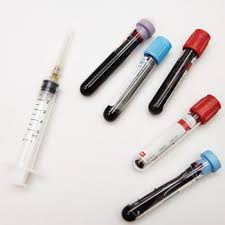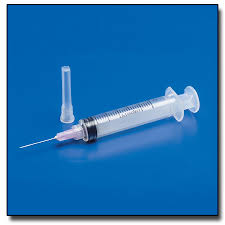BLOOD THINNING MEDICATIONS(oral anticoagulants)
ANTICOAGULANTS
An anticoagulant is a drug used to prevent and treat abnormal blood clotting. Anticoagulants are sometimes called “blood thinners”. It is a myth that anticoagulants do dissolve clots that are already formed. Actually,they help the body to dissolve the clot already formed and helps to prevent formation of new clots.
After starting an oral anticoagulant, it takes at least 3-4 days before it takes full effect .These drugs reduce the amount of blood clotting factors produced in the liver These tablets work on vitamin K which is a clotting factor in the human body. Excessive blood clotting problems, heart valve replacement surgery, abnormal rhythms of the heart etc are few conditions which warrants blood thinning medications. Other conditions like clots in the heart ,deep vein thrombosis, pulmonary embolism ,recent heart attack, stroke etc. also requires the same medications.
Levels of blood thinning may differ in different conditions. The degree of blood thinning is measured by a simple blood test called INR (International Normalised Ratio) or by PTT (Partial Prothrombin time).
The commonly used anticoagulants are Warfarin, Acitrom and Dindivan. Coffinated beverages like cola, coffee, tea, hot chocolate, chocolate etc are likely to interfere with the effect of anticoagulation treatment. Diet containing green leafy vegetables, cauliflower, tomato, legumes, soyabeen, soyabean oil, food supplements like ensure and boost contain higher Vitamin K levels. Consuming too much of the above mentioned diet can prove reverse effect also.
Following are some food materials containing Vitamin K in rich amounts.
Vitamin-K rich vegetables :-
NEED OF AN ORAL ANTICOAGULANT
An oral anticoagulant is prescribed when you already have an abnormal clotting episode or when you are at risk of a clotting event.
ARE BLOOD CLOTS SO DANGEROUS?

Yes,blod clots are fatal.Abnormal blood clots can form in your arteries, veins, or in your heart. They are dangerous because they block the normal blood flow in an artery or vein. This prevents blood and oxygen from reaching the important organs and tissues. Blood clots can also break off from their origin and be carried through the blood stream. Blood clots can cause a heart attack if they block a blood vessel in the heart,or a a stroke if they block a blood vessel in the brain. Blood clots can block blood vessels in other parts of the body, such as in the leg or arm or lungs. Blood clots in the lungs are called pulmonary emboli.
ORAL ANTICOAGULANTS
Warfarin is available in different strength tablets ( 1 mg ,2mg and 5 mg). Acitrom is available as 1mg,2mg,and 4mg
Warfarin and acitrom dosage are once a day.  It can be taken at any time of the day, although it should be taken around the same time every day.We generally advise patients to take it around 6 pm so that they don’t forget it. Other medications can be taken once a day with the other medications. Warfarin can be taken with food or on an empty stomach.
It can be taken at any time of the day, although it should be taken around the same time every day.We generally advise patients to take it around 6 pm so that they don’t forget it. Other medications can be taken once a day with the other medications. Warfarin can be taken with food or on an empty stomach.
The dose of warfarin may change from day-to-day in a week and from time-to-time over the year. It is very important to keep a record of all your warfarin doses and the blood test results in one place, such as a calendar. This helps to avoid mistakes in the dose. It also helps you and your doctor to review the pattern of warfarin doses and the blood test results over time and adjust the doses .
HOW LONG WILL I HAVE TO TAKE WARFARIN?
How long you need to take warfarin depends on why you need an anticoagulant. Many people must take lifelong anticoagulant medication. Others need to take it for only 3-12 months. .Never stop taking this medication without discussing it with your doctor .
NEED FOR BLOOD TESTS?
The dose of warfarin needed by different patients varies a lot and is largely unpredictable.Hence blood tests are needed to measure the effect of warfarin on the blood’s ability to clot. Since anticoagulation is a very delicate process and if the dose is too low, you are at risk of developing a stroke, heart attack or a clot in the leg veins .Excessive intake of the drug increases your risk of developing serious bleeding. Blood tests must be done for as long as you take warfarin because many factors can affect your response to it.
A blood test result (INR) that is within the desired range is the most important part of warfarin therapy. Some patients require as little as 1 mg of warfarin per day while others require over 20 mg per day to attain the correct blood test result. Patients who require higher doses of warfarin are NOT at greater risk of side effects than patients who require lower doses. Please remember that it is the INR value that is important, not the number of milligrams of warfarin or the number of tablets per day.
TYPE OF BLOOD TESTS
The blood test that is essential for all patients taking an oral anticoagulant is called the prothrombin time. This is also known as the “Pro Time” or “PT”. The Pro Time measures the time taken for your blood to clot. The Pro Time value is stated in a standardized way using a value called INR (International Normalized Ratio).
The higher the INR value, the longer it takes the blood to clot. Healthy people who are not taking warfarin have an INR value of approximately 1.0. INR can be prolonged without medications in case of advanced liver disease.For most patients on warfarin, the INR should be between 2.0 and 3.0. This is called the target range. Patients with some types of mechanical heart valves require an INR target range of 2.5 to 3.5. Patients with bioprosthetic heart valves donot need oral anticoagulants .You should ask your doctor what your target range should be.
An INR below the target range (this means you are under-anticoagulated) may result in a new blood clot or stroke. An INR greater than the target range (this means you are over-anticoagulated) may put you at risk of serious bleeding.
HOW OFTEN DO I NEED TO HAVE BLOOD TESTS?
This also varies from time-to-time and from patient-to-patient. When you first start taking warfarin, you may need to have an INR test every few days. Once your doctor has found the appropriate dose of warfarin, you will probably need an INR test once every week or two for a few weeks. If these test results and the warfarin dose remain somewhat stable and in the target range, then tests may be decreased to every 4-5 weeks. The warfarin dose may need to be increased or decreased periodically depending on the INR results. Similarly, how often the INR test is needed will depend on how stable the INR results are.
WILL MY BLOOD TEST RESULTS CHANGE INTERMITTENTLY?
Yes. The INR value will not be the same every time and the reason why the test must continue to be done for as long as you are taking warfarin. In the beginning, the warfarin dose may change as your doctor tries to find the right dose for you. Even after your right dose has been determined, many factors could affect your INR results. Make sure to tell your doctor about any of the following:
· New illnesses
· Starting any new medications or other medications or herbal products
· Stopping old medications
· If you forget to take warfarin
· Major changes in your diet or activity level
· More than 2 drinks of alcohol per day
if you notice any brises or black patches over skin or bleeding from any part of your body.
Forgetting to take your warfarin will also affect the INR results. It is important to tell your doctor about missed doses.
IF YOU FORGET TO TAKE WARFARIN/ACITROM TABLETS
Warfarin /acitrom has a fairly long effect so taking a dose late will not cause any major problems. If you forget to take your dose at your usual time, take it when you remember at any time on that day. But,if you forget to take your warfarin for two or more days in a row, DO NOT take all of the missed doses.
CAN WARFARIN /ACITROM BE TAKEN WITH OTHER MEDICATIONS?
Many medications interact with warfarin and increase or decrease its effect. This can be fatal.However,most drugs can be safe;y taken with warfarin since INR is being monitored frequently. Inform your doctor about all prescription and non-prescription medications as well as herbal and natural health products you take before switching on to warfarin. It is generally advised to have an INR test 4-5 days after starting a new medication that might interact with warfarin.
Some of the most common medications that can increase the effect of warfarin include or increase the risk of bleeding include (prolong the INR)
· Some antibiotics
Paracetamol
· Amiodarone (Cordarone)
· High doses of anti-inflammatory agents
· Aspirin,alcohol >than 3 drinks ,vitamin E,Fish oil supplements(can cause increase in bleeding risk without prolonging INR)
You should not take aspirin (or medications that contain aspirin) unless your doctor tells you that there is a specific reason to take both aspirin and warfarin.
IF SOME CUTS OR BRUISES OCCURS
Generally, small cuts or scrapes will stop bleeding after applying direct pressure to the cut. Call your doctor immediately if you have a serious fall or hit your head.
IF MAJOR BLEEDING OCCURS
If any major bleeding occurs in a atient on warfarin the anticoagulant effect should be reversed immedietly,so this information should be passed on to the casualty medical officer immedietly on admission
WARFARIN AND PREGNANCY
Warfarin should not be taken if you are pregnant because oral anticoagulation medication can cause birth defects and harm the unborn baby. The damage to the fetus is maximum during the initial 3 months especially when organ formation happens.So the first 12 weeks and the last 3 weeks should be covered with heparin .It is best to avoid becoming pregnant while taking warfarin. If there is a chance that you might become pregnant while taking warfarin, you should discuss reliable birth control methods with your doctor.If you wish to become pregnant while on an oral anticoagulant it is better to discuss with your doctor and change over to heparin before becoming pregnant.The rate of fetal loss is around 10 % inspite of all precautions.
Although warfarin does pass into breast milk, the amount is too trivial for the baby to get affected. Therefore, it is generally safe to breastfeed while taking warfarin.
WARFARIN AND TRAVEL
Oral anticoagulation therapy should generally not affect any travel plans. If the trip will be longer than the time until your next INR test you should however tell your doctor. Be sure to take enough tablets with you for the entire trip.
SHOULD I RESTRICT SPORTS AND OTHER ACTIVITIES?
Patients taking warfarin can participate in most sports. It is a good idea to discuss this with your healthcare provider before starting any new sports or activity. Proper protective equipment is recommended for all sports. If you play squash or racquetball, you should wear eye protection. For cycling, hockey, in-line skating and downhill skiing, wearing a helmet is mandatory.
CAUTION WHILE USING WARFARIN
The main complication of taking an anticoagulant medication is bleeding. It is common for patients taking warfarin to have more bruising than usual. It may also take slightly longer to stop bleeding from cuts or during an epistaxis which is quite normal. Abnormal bleeding can occur anywhere in the body.
Please watch for:
· Severe or prolonged headaches
· Sudden dizziness, weakness, trouble breathing, or chest pain
· Bruising or tender swellings for no reason
· Vomiting or throwing up of blood
· New swelling or severe pain in the abdomen
· Bowel movements that contain blood or are black
· Urine that contains blood
· Severe, prolonged back pain especially if this is new
· Persistent nose bleeds that do not respond to squeezing of the nose for at least 10 minutes
· Coughing up blood
· Lots of bleeding when you brush your teeth, especially if this is new
· Prolonged bleeding from small cuts especially while shaving
· Very heavy menstrual bleeding (at least twice normal). Most women who take warfarin do not experience any increase in their menstrual periods. If they bleed excessively the physician should be immediately called for.
Older patients are more sensitive to the anticoagulant effects of warfarin and thus are more likely to experience bleeding complications.
Apart from a risk of bleeding, warfarin has very few side effects. If you think that this medication may be causing side effects, talk to your doctor or pharmacist.
LIFESTYLE AND DIET WITH WARFARIN THERAPY?
PHYSICAL ACTIVITIES
Patients taking oral anticoagulants should continue their usual physical activities and are free to start new physical activities. However, you should probably avoid contact sports or other activities in which injuries are common.
However, you should probably avoid contact sports or other activities in which injuries are common.
DIET
It is important for people to eat a healthy diet. Some foods contain Vitamin Kwhich tends to work against warfarin. In high amounts, vitamin K can reverse the anticoagulant effects of warfarin.
In the past, people were advised to avoid foods with vitamin K because vitamin K reduces warfarin’s efficacy and lowers the INR. These days, I recommend regular, moderate consumption of these healthy vegetables, but keep it fairly consistent so that your doctor can adjust your warfarin dosage to match your diet. If your diet varies quite a bit, your INR levels can swing very high or low.
Foods with excessive vitamin K to avoid include: large amounts of onions (greater than ¼ cup), avocado , egg yolks (not more than four per week), liver, seaweed .
Foods that contain vitamin K include the Green leafy vegetables,Pulses and legumes, broccoliCauliflower,Cabbage,Spinach,Asparagus,Egg yolk,Liver (Beef, Pork, Chicken),Mayonnaise,Soya bean oil,Olive oil,Soya beans,Chickpeas,Coffeinated beverages like cola, coffee, tea,hot chocolate milk. These foods are among the healthiest and should not be avoided.
ALCOHOL
Warfarin and alcohol are broken down in the liver by the same mechanism. Alcohol can affect the INR value and interact with the effects of warfarin.Daily moderate alcohol use (1 or 2 drinks – no more) has little effect on the INR Patients on warfarin can safely have one or two alcoholic drinks (beer, glass of wine, shot of spirits) a day. Howevever in chronic heavy alcoholics (more than 3 drinks /day), warfarin will be metabolized faster and these patients need a higher dose .In these patients if the alcohol co+nsumpption is stopped suddenly the INR levels will shoot up and will result in increase in bleeding risk.
Alcohol can affect the INR value and interact with the effects of warfarin.Daily moderate alcohol use (1 or 2 drinks – no more) has little effect on the INR Patients on warfarin can safely have one or two alcoholic drinks (beer, glass of wine, shot of spirits) a day. Howevever in chronic heavy alcoholics (more than 3 drinks /day), warfarin will be metabolized faster and these patients need a higher dose .In these patients if the alcohol co+nsumpption is stopped suddenly the INR levels will shoot up and will result in increase in bleeding risk.
